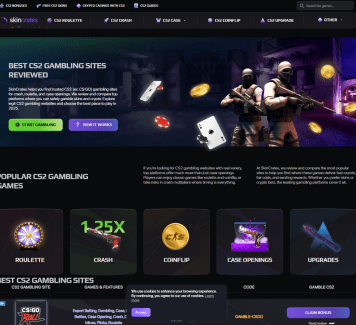
In the ever-evolving landscape of the internet, the demand for IPv4 addresses continues to surge, and with it, the opportunities for selling these precious digital assets. IPv4 addresses are the foundation of our online connectivity, and as their availability diminishes, organizations are exploring the benefits of monetizing their surplus address space. In this blog, we will delve deeper into the process of selling IPv4 addresses, examining the steps involved, the benefits, and the considerations for successful transactions.
The IPv4 address market
The IPv4 address market is a dynamic ecosystem where organizations can sell their surplus IPv4 addresses to those in need. The market’s growth has been fueled by several factors:
- Scarcity: The most apparent driver is the exhaustion of the IPv4 address pool. As businesses expand and more devices come online, there is a growing need for IPv4 addresses, even alongside the adoption of IPv6.
- Revenue generation: Companies that have accumulated substantial address blocks over the years see an opportunity to generate revenue by selling unused or excess addresses.
- Facilitation services: IPv4 brokers and consulting firms have emerged to streamline the selling process, making it more accessible for organizations of all sizes.
Selling IPv4 addresses: step by step
Let’s break down the process of selling IPv4 addresses into key steps:
- Inventory assessment: Begin by identifying the IPv4 address blocks that you can sell. Assess which portions of your address space are unused or underutilized.
- Legal and regulatory compliance: Ensure that your proposed transfer complies with the policies of the Regional Internet Registry (RIR) governing your address space. These policies may vary by region.
- Engage an IPv4 broker: Consider working with an IPv4 broker or consulting firm experienced in facilitating address transfers. They can help you navigate the complexities of the market.
- Valuation: The value of IPv4 addresses fluctuates based on supply and demand. An IPv4 broker can help you determine a fair market price for your address space.
- Negotiation and agreement: Once you have identified a buyer, negotiate the terms of the transfer, including the price, payment method, and timeline. A legally binding contract should be established.
- RIR approval: Most transfers require approval from the relevant RIR. Prepare and submit the necessary documentation to secure their consent.
- Address space transfer: After approval, the transfer process involves updating the records with the RIR, and the addresses are reassigned to the buyer.
Benefits of selling IPv4 addresses
Selling IPv4 addresses can offer numerous advantages to organizations:
- Monetization: It allows organizations to generate revenue from underutilized or surplus address space.
- Resource optimization: By selling unused addresses, companies can optimize their IP address allocations and improve their network efficiency.
- Market liquidity: The IPv4 address market provides a platform for liquidity, allowing businesses to adapt to changing networking needs.
- Risk mitigation: It helps organizations reduce the risk of address space mismanagement or IP address depletion.
Considerations and challenges
While selling IPv4 addresses can be profitable, organizations should also be aware of potential challenges:
- RIR policies: Different RIRs have varying policies regarding address transfers. Complying with these policies is essential for a successful transaction.
- Legal compliance: Ensure that the transfer complies with international and regional laws and regulations.
- Market volatility: The market price for IPv4 addresses can fluctuate, impacting the potential return on investment.
- IPv6 transition: Organizations should still consider adopting IPv6 to future-proof their networks.
The internet is a vast and constantly changing environment. As a result, there is a growing demand for IPv4 addresses. This demand presents organizations with exciting opportunities to maximize the value of their digital assets. As we delve into the process of selling IPv4 addresses, it is important to also examine the dynamic trends that are shaping this market. In this blog, we will explore the complex dynamics of the IPv4 address market. Our focus will be on industry-specific demands, regional variations, and emerging patterns that shape this vibrant ecosystem.
Industry-Specific Demand: Understanding the Driving Forces
The market for IPv4 addresses is not a situation where one solution fits all. Various industries drive the need for address space, each having its own distinct set of requirements.
Telecommunications: The telecommunications sector plays a crucial role in driving the demand for IPv4 addresses. Telcos are increasingly relying on IPv4 addresses to support their expanding infrastructure and growing customer base; as networks continue to expand, 5G technology emerges, and the number of connected devices increases.
Internet of Things (IoT): In the realm of IoT, where devices communicate effortlessly to create a connected environment, there is a significant demand for IPv4 addresses. Organizations involved in the Internet of Things (IoT) utilize these addresses to facilitate the seamless exchange of data between interconnected devices, thereby contributing to the progress of the IoT ecosystem.
E-commerce: The thriving e-commerce industry is also a significant driver of the demand for IPv4 addresses. With the rapid growth of online businesses and the increasing prevalence of digital transactions, IPv4 addresses have become essential for ensuring secure transactions and improving overall customer experiences in the e-commerce industry.
Regional Variations: Navigating the Geographical Tapestry
The market for IPv4 addresses exhibits subtle differences in various geographical regions. Understanding these variations is crucial for organizations that want to customize their strategies.
Demand Variances: Geographical locations frequently display variations in the demand for IPv4 addresses. Certain regions experience a significant increase in demand as a result of rapid technological advancements, whereas others maintain a more stable market. It is crucial to analyze the factors that contribute to these variations in demand in order to facilitate strategic planning.
Supply Dynamics: The availability of IPv4 addresses varies from region to region. While some areas may still have an abundance of IPv4 addresses, others are experiencing a shortage. In order to strategically plan their address space transactions, organizations must have a thorough understanding of supply dynamics and consider regional constraints.
Market Dynamics: The overall market dynamics in different regions are influenced by regulatory environments, economic conditions, and geopolitical factors. By comprehending these dynamics, organizations can effectively adjust their strategies to address the distinct challenges and opportunities that arise in different geographical locations.
Emerging Patterns: Anticipating Tomorrow’s Landscape
The IPv4 address market, being a dynamic entity, reveals emerging patterns that provide insights into the future.
Buyer Behavior Shifts: Changes in buyer behavior within the IPv4 address market indicate shifting preferences and priorities. Organizations need to be aware of these shifts in order to adjust their strategies and meet the evolving needs of potential buyers.
New Players in the Market: The market is always open to new players, whether they are startups, enterprises entering the market for the first time, or organizations looking to expand their address space portfolios. It is crucial for established players to understand the impact of these new entrants on market dynamics.
Innovative Technology Adoption: The IPv4 address market is witnessing the adoption of innovative technologies as technology continues to advance. By staying updated on these adoptions, organizations can be well-prepared to incorporate new technologies into their address space strategies. This fosters adaptability in a rapidly evolving landscape.
Wrapping up
In conclusion, the market for IPv4 addresses is not simply a place for transactions but rather a dynamic ecosystem that is shaped by industry needs, regional complexities, and emerging trends. To take advantage of their excess address space, organizations need to navigate these dynamic waves with informed insights. Businesses can strategically position themselves in the IPv4 address market by understanding industry-specific demands, regional variations, and emerging patterns. This understanding will contribute to the growth and adaptability of the market in the constantly changing internet landscape. By navigating the process carefully, adhering to regulations, and working with experienced brokers like Prefixbroker.com, businesses can harness the potential of this digital commodity while embracing the evolution of internet technology.













